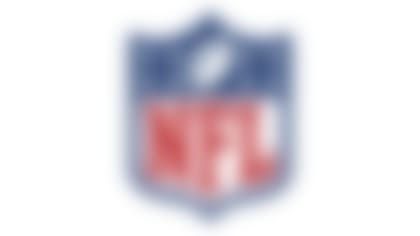GREEN BAY, Wisc. -- As he prepares for his 14th NFL season, Aaron Rodgers does not look back fondly on his unlucky 13th. He missed nine games due to a broken collarbone -- and, not coincidentally, the Green Bay Packers missed the postseason for the first time since 2008.
Yet when Rodgers reflects on the 2017 campaign, the two-time NFL MVP takes solace in the fact that, in the wake of attacks from President Donald Trump and others surrounding player protests timed to coincide with the playing of the national anthem, he and many of his NFL peers have become more united and galvanized in their efforts to fight for social justice.
"Last year was definitely a different year, and I think you're finally seeing a lot of crossover with social media and the NFL," Rodgers told NFL.com on Monday following the Packers' training-camp practice.
"Obviously, the league is worried about its ratings and everything, but it seems that with the distribution from the TV (networks) that everybody's doing pretty well. But it is interesting to see how moments like that can be the impetus for guys coming together and getting some perspective."
In offering his thoughts on the increasingly ardent efforts by NFL players -- and prominent athletes in general -- to address societal inequities and facilitate equal opportunity for all citizens, Rodgers made it clear he is down with the cause. He also expressed solidarity with LeBron James, who was targeted by Trump in a tweet last Friday that mocked the NBA superstar's intelligence.
"He knows he has the support of his contemporaries," Rodgers said of James, "in his own sport and in other sports."
Rodgers' comments come nearly one year after President Trump implored NFL owners to take action against protesting players with these words at a rally in Huntsville, Alabama: "Wouldn't you love to see one of these NFL owners, when somebody disrespects our flag, to say, 'Get that son of a bitch off the field right now. Out. He's fired. He's fired!' " This helped inflame anger over the issue, with critics stigmatizing the players as anti-military and threatening to boycott the league in response. Rodgers has been bombarded with that sentiment on his social-media feeds and he, like many NFL players, believes the depiction is inaccurate and unfair.
"Yeah, I've gotten a ton of that on my social media," Rodgers said. "Not really in person, (though) I wouldn't mind a conversation about that in person. I don't shy away from that stuff. But definitely a lot online, and I don't need to respond to that. I really don't, because it's giving credence to an opinion, and value to an opinion, that's way off base -- because they've missed the point of what this was all about.
"I don't know how many times we can say, as a player and as a group, how much we love and support and appreciate the troops, and the opportunities this country allows us. But this is about equality and something bigger than ourselves, and bringing people together, and love and connectedness and equality and social justice, and putting a light on people who deserve to have the attention for their causes and their difficult situations that they're in. You know, people have their opinion -- you shouldn't do it during the anthem, you shouldn't do it during this -- that's fine. But let's not take away from what the real issue is."
Earlier Monday, Rodgers released a video on The Players' Tribune detailing his very personal reasons for supporting veterans via the Wounded Warrior Project. He also made it clear that he applauds the efforts of numerous NFL players to improve their communities and fight against the institutional forces that disproportionately impact the lives of certain citizens, among other charitable endeavors.
"Well, you know, the good stuff doesn't get the headlines," Rodgers said. "Especially in the summertime, when there's no football and the guys are out doing some great stuff -- whether it's free kids' camps, or putting in time doing volunteer work at various spots, or raising awareness about their own foundations or things that are important to them ... Those aren't getting the attention.
"The attention, (some) want it to be on arrests, or altercations and stuff, which, when you compare it to the general population, our percentages are much lower. But we're not held to the same standard, and they don't want to highlight some of the great things that we're doing. The league obviously does, but there are some folks who'd love to see football knocked off its top perch, and that's why those stories are the ones being glorified."
As for Trump's continued verbal assaults on Rodgers' peers as unpatriotic, and insistence that the NFL adopt a rule forcing all players to stand for the anthem, the 34-year-old quarterback believes such incendiary statements should not be dignified with a response.
"I think that the more that we give credence to stuff like that, the more it's gonna live on," he said. "I think if we can learn to ignore or not respond to stuff like that -- if we can -- it takes away the power of statements like that."
Rodgers said the fact that James, as of Monday, hadn't responded to Trump's attack was "absolutely beautiful. At a time where he's putting on display his school, which is changing lives, there's no need. Because you're just giving attention to that (tweet); that's what they want. So just don't respond."
Asked if he'd considered tweeting a response sticking up for his fellow superstar, Rodgers replied, "Actually, I texted with a friend and I said this: 'LeBron needs no help. He has stood on his own two feet for years, and he has done some incredible things, and he needs no support. He knows he has the support of his contemporaries, in his own sport and in other sports, and he's gonna be fine.' "
Rodgers, based on early-summer reviews from Packers camp, appears to be more than fine as he rebounds from the injury that ruined his 2017 campaign, one that began with so much promise.
After a hot start that included a dramatic, game-winning touchdown pass against the Dallas Cowboys that pushed Green Bay's record to 4-1, Rodgers took a hard hit from Minnesota Vikings linebacker Anthony Barr in the first quarter of an Oct. 15 game, landed on the U.S. Bank Stadium turf and left with a broken collarbone, the second time in five seasons he had suffered that injury.
Unlike in 2013, when Rodgers returned for the season finale and pulled off an epic, last-minute victory over the Chicago Bears to push the Pack into the postseason, there would be no miracle: After Green Bay lost that game to the Vikings and went 3-4 with Brett Hundley as the starter, Rodgers returned to face the Carolina Panthers with lots of rust and no margin for error. He threw three touchdowns and three interceptions in a 31-24 defeat that dropped the Pack to 7-7, officially ending their eight-year streak of playoff appearances. Two days later, Rodgers was placed on season-ending injured reserve.
"Well, you know, it's always difficult to be on the IR," Rodgers said. "Those were difficult times. But I'm proud of the fact that I came back and tried to battle through that injury. It's good to be on the other side of it."
By all accounts, Rodgers seems to have crossed over with a vengeance.
"He's on fire," Packers coach Mike McCarthy said Monday. "The offense has been performing at a very high level during camp, and we know where that starts. I think it's like anything with Aaron -- the more opportunities to truly compete, the more it brings out the best in him. And we're putting him out there a lot, because we want our defense to experience that and try to rise to the challenge."
Though the Packers parted ways with Rodgers' longtime top target, wideout Jordy Nelson, cutting him just before the start of the league year (he would sign with the Oakland Raiders two days later), they landed a premier free agent in five-time Pro Bowl tight end Jimmy Graham. With the emergence of fifth-year wideout Davante Adams as a No. 1 receiver (he has averaged 74.5 catches for 941 yards and 11 touchdowns over the past two seasons), allowing veteran Randall Cobb to thrive in the slot, there are exceptionally high hopes for an attack led by perhaps the most revered player in the game.
"He's getting ready to win another MVP," Adams said Monday. "In my eyes, we're going to kick it into another gear. He's ready to roll. When it's taken away from you, you go a little harder than before, and it definitely gets you ready to play. I think we've got the personnel to win it all. We've just got to go out there and perform."
Being able to perform at a high level -- as the main man in Titletown -- is something that Rodgers does not take for granted. Selected in the first round of the 2005 NFL Draft after a stellar career at Cal, Rodgers spent three years as the backup to a living legend, Brett Favre, before the future first-ballot Hall of Famer announced his retirement in the spring of 2008. Months later, Favre abruptly unretired and showed up at Packers training camp, creating a surreal scene that finally ended with him being traded to the New York Jets. At the time, the organization's refusal to give Favre his job back was highly unpopular with Packers fans, many of whom vented their displeasure to Rodgers.
On Monday, he chuckled when reminded that the day marked the 10-year anniversary of an infamous incident in which a young boy lining the field told him during a training-camp practice, "We don't love you. You suck."
"He's probably 17 or so now," Rodgers said, smiling. "That's either his moment of greatness, or his most embarrassing moment -- one of the two.
"I mean, it is crazy. Time has just flown by. I'm obviously really proud that I'm still here -- still playing, and still playing well. But yeah, it's crazy to think about how much has changed since then."
As Rodgers and many of his fellow NFL players work to try to change the world for the better, one of his core principles has remained constant: When possible, block out the noise, and focus on the outcome.
Follow Michael Silver on Twitter at @MikeSilver.












